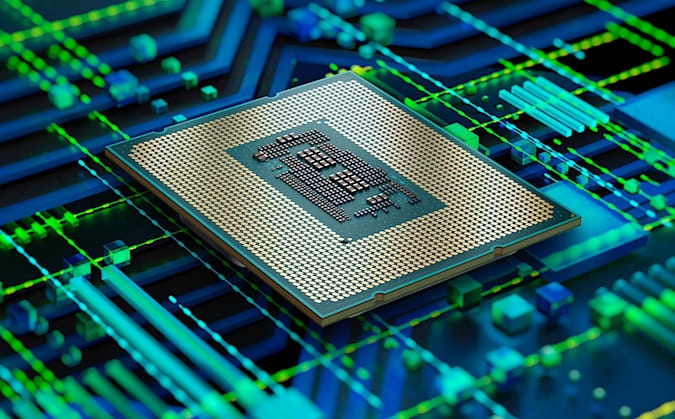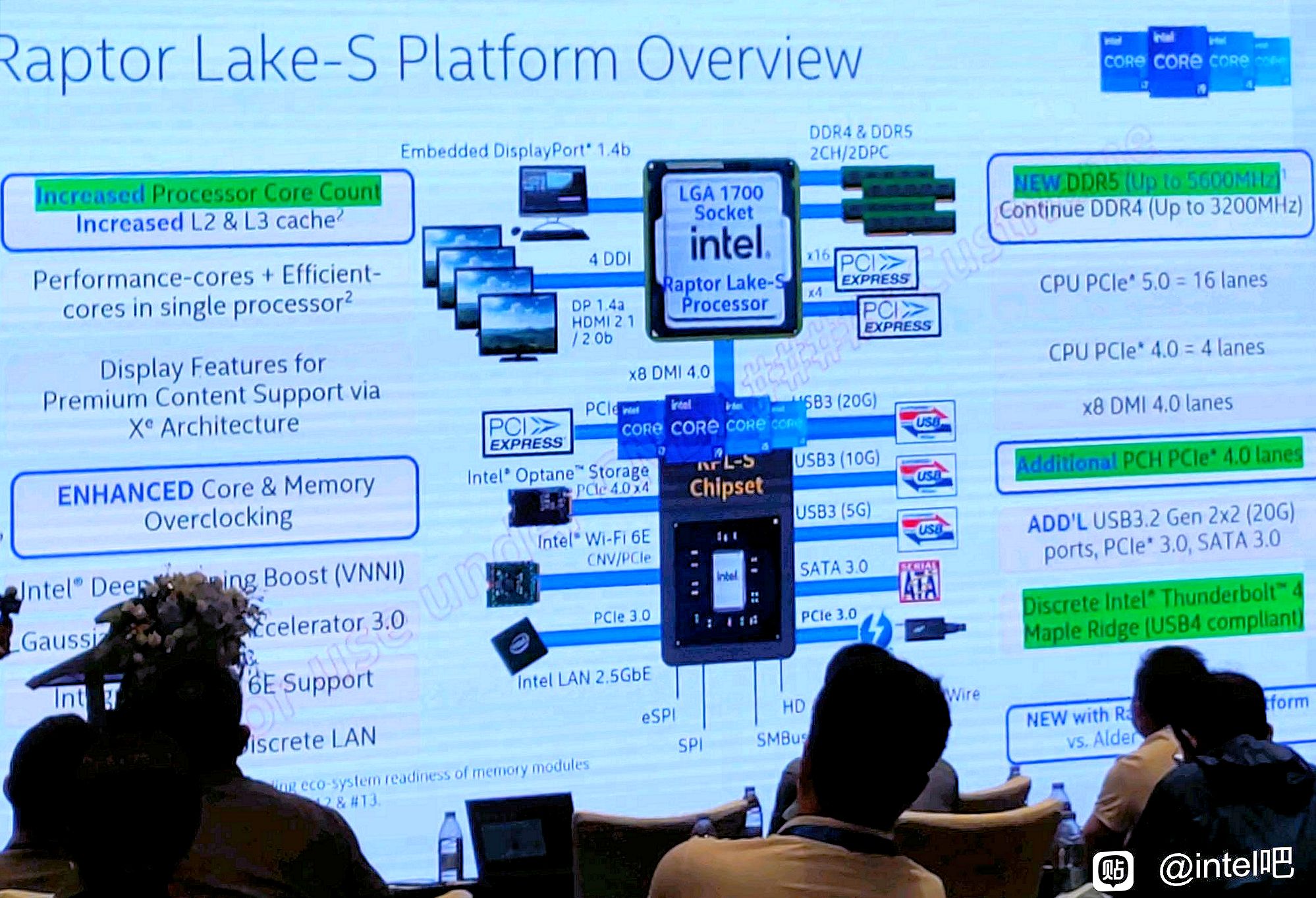Intel's 13th Gen Raptor Lake specs have leaked, and it may be bad news for PCIe 5.0 SSDs
Faster CPUs and memory, but what about PCIe 5.0 SSD support?

The rumor mill is in overdrive right now. Whether it's about CPUs, GPUs, or motherboards, we know for sure that the back end of 2022 is shaping up to be absolutely mega for PC enthusiasts.
Intel is getting ready to launch its 13th Gen Core CPU range, codenamed Raptor Lake, and its accompanying 700 series motherboards. Being based on the LGA 1700 platform, with backwards compatibility with 600 series boards confirmed, we have a good idea of what to expect as far as features go. But less clear is that, despite the platform supporting PCI Express 5.0, confirmation as to whether 700 series motherboards will actively support PCIe 5.0 M.2 drives is less certain.
According to a picture leaked from a presentation at an Intel NAS workshop in China (via @9550pro and Videocardz), the 700 series motherboards will not have dedicated PCIe 5.0 lanes for an M.2 drive. The overview in question states that there will be 16 PCIe 5.0 lanes (typically allocated to the primary x16 slot for use by a GPU) with a further 4 PCIe 4.0 lanes for an M.2 drive. The x8 DMI lanes connect the CPU to the chipset. Overall, the PCIe complement is the same as that offered by the Z690 platform.
That may conflict with another leak from Moore’s Law is Dead. Or does it? There’s no reason that a motherboard manufacturer can’t split the 16 PCIe 5.0 lanes. 8 to the GPU and 2 x 4 for a pair of M.2 slots would be possible. That would give the appearance of being suboptimal for high end boards, even though an x8 PCIe 5.0 slot is equivalent to an x16 PCIe 4.0 slot and shouldn’t have any noticeable impact on GPU performance, even with a next generation flagship card.

Best CPU for gaming: The top chips from Intel and AMD
Best gaming motherboard: The right boards
Best graphics card: Your perfect pixel-pusher awaits
Best SSD for gaming: Get into the game ahead of the rest
The same slide also mentions that the 700 series platform will officially support DDR5-5600, additional USB 3.2 Gen 2x2 ports, and Thunderbolt 4. Interestingly, Intel’s Optane SSD storage technology is still supported, even though it’s dead at the consumer level.
There’s also confirmation that some SKUs will feature higher core counts and that L2 and L3 cache sizes have been increased. The latter will certainly help to boost gaming performance much like it did with AMD’s Ryzen 7 5800X3D.
While Raptor Lake appears to be more of an evolutionary upgrade than a revolutionary one, it's going to be interesting to see what effect the extra cache and core count has, not to mention the rumored increase in frequency. 13th Gen CPUs are expected to make their debut within the next few months. It will compete with AMD’s Zen 4 CPUs and 600 series platform that will launch around the same time.
The biggest gaming news, reviews and hardware deals
Keep up to date with the most important stories and the best deals, as picked by the PC Gamer team.


Chris' gaming experiences go back to the mid-nineties when he conned his parents into buying an 'educational PC' that was conveniently overpowered to play Doom and Tie Fighter. He developed a love of extreme overclocking that destroyed his savings despite the cheaper hardware on offer via his job at a PC store. To afford more LN2 he began moonlighting as a reviewer for VR-Zone before jumping the fence to work for MSI Australia. Since then, he's gone back to journalism, enthusiastically reviewing the latest and greatest components for PC & Tech Authority, PC Powerplay and currently Australian Personal Computer magazine and PC Gamer. Chris still puts far too many hours into Borderlands 3, always striving to become a more efficient killer.

